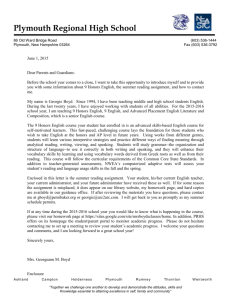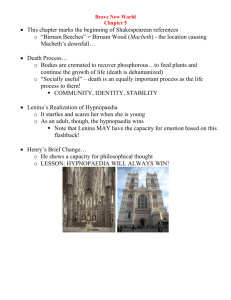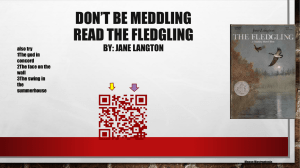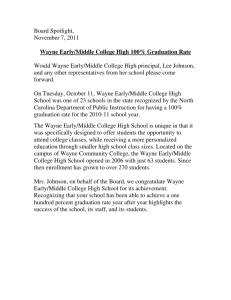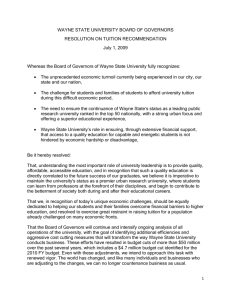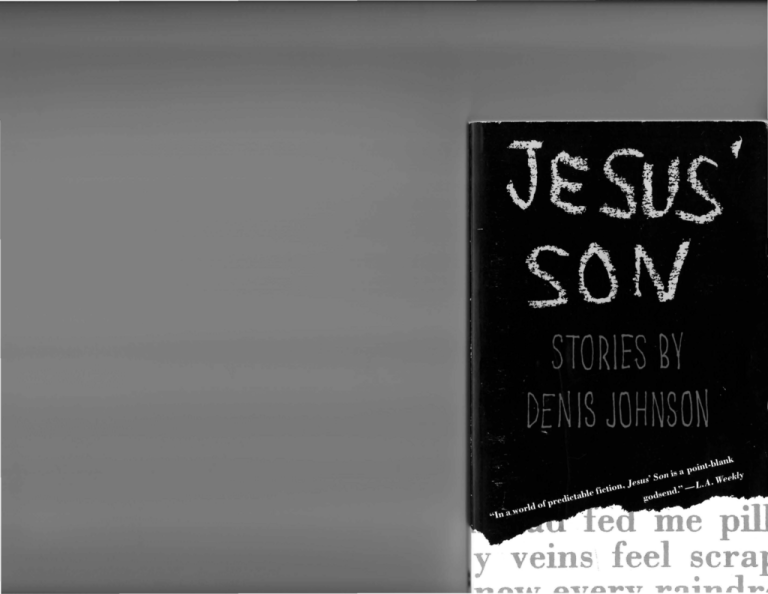
e me pill
y veins', feel sera]
~~~~~~~~~~~~~ ~~~&T ~~T~~~T ~n~~~~~
For Bob Cornfield
A hardcover edition of thi8 book was published in 1992 by Farrar,
Straus and Giroux. It is reprinted by arrangement with Farrar,
Straus and Giroux.
Copyright© 1992 by Denis Johnson. All rights
reserved. Printed in the United States of America. No part of this
book may be used or reproduced in any manner whatsoever
without written permission except in the case of brief quotations
embodied in critical articles and reviews. For information address
HarperCollins Publishers, Inc., 10 East 53rd Street, New York,
NY 10022.
JESUS' soN .
HarperCollins books may be purchased for educational, business,
or sales promotional use. For information please write: Special
Markets Department, HarperCollins Publishers, Inc., 10 East
53rd Street, New York, NY 10022.
First Harper Perennial edition published 1993.
Desilfned by Cynthia Krupat
Library of Congress Cataloging-in-Publication Data
Johnson, Denia, l949Jesus' son: stories/ by Denis Johnson.lst HarperPerennial ed.
p. em.
Contenta: Car crash while hitchhiking- Two menOut on bail- Dundun- Work- EmergencyDirty wedding- Thf' other man - Happy hourSteady hands at Seattle General- Beverly Home.
ISBN 0-06-097577-6
I. Title.
PS3560.03745J47 1993
93-8484
813'.54-dc20
Stories from this collection have appeared in the
f ollowing publications: " Two Men:• "Work:' "Dirt.Y
Wedding." and "Emergency" in The New Yorker; "Car Crash
While Hitchhiking'' and "Bever(y Home" in the Paris Review;
"Out on Bail" in Epoch; "Stead.Y Hands at Seattle General" and
"Dundun" in Esquire; "The Other Man" in Big Wednesday; "Car Crash
While Hitchhiking" in Best American Short Stories, 1990: "Emergency"
in Best American Short Stories, 1992.
Th~
author acknowledges permission to quote lyrics from
"1/~roin"
by Lou Reed, " 1966 Oa~field Avenue Music:
all rights controlled and administered by Screen Gems-EM/
07 08 09 CWI 36
Music, Inc.; all rights reserved: used by permission.
WORK
I'd been staying at the Holiday Inn with my girlfriend, honestly the most beautiful woman I'd
ver known, for three days under a phony name,
ehooting heroin. We made love in the bed, ate
leaks at the restaurant, shot up in the john,
puked, cried, accused one another, begged of one
another, forgave, promised, and carried one another to heaven.
But there was a fight. I stood outside the motel
hitchhiking, dressed up in a hurry, shirtless unci r my jacket, with the wind crying through my
11rring. A bus came. I climbed aboard and sat
em the plastic seat while the things of our city
lu rned in the windows like the images in a slot
1t111 ·hine.
nee, as we stood arguing at a streetcorner, I
1umched her in the stomach. She doubled over
Jesus' Son I 56
Work
I
57
and broke down crying. A car full of young college men stopped beside us.
"She's feeling sick," I told them.
"Bullshit," one of them said. "You elbowed
her right in the gut."
"He did, he did, he did," she said, weeping.
I don't remember what I said to them. I remember loneliness crushing first my lungs, then
my heart, then my halls. They put her in the car
with them and drove away.
But she came hack.
This morning, after the fight, after sitting on
the bus for several blocks with a thoughtless, red
mind, I jumped down and walked into the Vine.
The Vine was still and cold. Wayne was the
only customer. His hands were shaking. He
couldn't lift his glass.
I put my left hand on Wayne's shoulder, and
with my right, opiated and steady, I brought his
shot of bourbon to his lips.
"How would you feel about making some
money?" he asked me.
"I was just going to go over here in the corner
and nod out," I informed him.
"I decided," he said, "in my mind, to make
some money."
"So what?" I said.
"Come with me," he begged.
"You mean you need a ride."
"I have the tools," he said. "All we need is
that sorry-ass car of yours to get around in."
We found my sixty-dollar Chevrolet, the finest
and best thing I ever bought, considering the
price, in the streets near my apartment. I liked
that car. It was the kind of thing you could hang
into a phone pole with and nothing would happen
nt all.
Wayne cradled his burlap sack of tools in his
lap as we drove out of town to where the fields
hunched up into hills and then dipped down toward a cool river mothered by benevolent clouds.
All the houses on the riverbank-a dozen or
o-were abandoned. The same company, you
·uuld tell, had built them all, and then painted
111 m four different colors. The windows in the
lower stories were empty of glass. We passed
ulongside them and I saw that the ground floors
uf these buildings were covered with silt. Some1 me hack a flood had run over the hanks, can•·•·lling everything. But now the river was flat and
•low. Willows stroked the waters with their hair.
"Are we doing a burglary?" I asked Wayne.
"You can't burgulate a forgotten, empty
lu~u ·,"he said, horrified at my stupidity.
Jesus' Son
I 58
I didn't say anything.
"This is a salvage job," he said. "Pull up to
that one, right about there."
The house we parked in front of just had a
terrible feeling about it. I knocked.
"Don't do that," Wayne said. "It's stupid."
Inside, our feet kicked up the silt the river had
left here. The watermark wandered the walls of
the downstairs about three feet above the floor.
Straight, stiff grass lay all over the place in
bunches, as if someone had stretched them there
to dry.
Wayne used a pry bar, and I had a shiny hammer with a blue rubber grip. We put the pry
points in the seams of the wall and started tearing
away the Sheetrock. It came loose with a noise
like old men coughing. Whenever we exposed
some of the wiring in its white plastic jacket, we
ripped it free of its connections, pulled it out,
and bunched it up. That's what we were after.
We intended to sell the copper wire for scrap.
By the time we were on the second floor, I could
see we were going to make some money. But I
was getting tired. I dropped the hammer, went
to the bathroom. I was sweaty and thirsty. But
of course the water didn't work.
I went back to Wayne, standing in one of two
small empty bedrooms. and started danciq
Work
I
59
around and pounding the walls, breaking
through the Sheetrock and making a giant racket,
until the hammer got stuck. Wayne ignored this
misbehavior.
I was catching my breath.
I asked him, "Who owned these houses, do you
think?"
He stopped doing anything. "This is my
house."
"It is?"
"It was."
He gave the wire a long, smooth yank, a gesture
full of the serenity of hatred, popping its staples
llnd freeing it into the room.
We balled up big gobs of wire in the center of
•ach room, working for over an hour. I boosted
Wayne through the trapdoor into the attic, and
he pulled me up after him, both of us sweating
nnd our pores leaking the poisons of drink, which
8melled like old citrus peelings, and we made a
mound of white-jacketed wire in the top of his
former home, pulling it up out of the floor.
I felt weak. I had to vomit in the corner-just
•• thimbleful of grey bile. "All this work," I complnined, "is fucking with my high. Can't you figur ' out some easier way of making a dollar?"
Wayne went to the window. He rapped it sevllrlll times with his pry bar, each time harder,
]esu.s' Son
I
60
until it was loudly destroyed. We threw the stuff
out there onto the mud-flattened meadow that
came right up below us from the river.
It was quiet in this strange neighborhood along
the bank except for the steady breeze in the young
leaves. But now we heard a boat coming upstream. The sound curlicued through the riverside saplings like a bee, and in a minute a flatnosed sports boat cut up the middle of the river
going thirty or forty, at least.
This boat was pulling behind itself a tremendous triangular kite on a rope. From the kite,
up in the air a hundred feet or so, a woman was
suspended, belted in .somehow, I would have
guessed. She had long red hair. She was delicate
and white, and naked except for her beautiful
hair. I don't know what she was thinking as she
floated past these ruins.
''What's she doing?" was all I could say,
though we could see that she was flying.
"Now, that is a beautiful sight," Wayne .s aid.
On the way to town, Wayne asked me to make
a long detour onto the Old Highway. He had me
pull up to a lopsided farmhouse set on a hill of
grass.
Work
I
61
"I'm not going in but for two seconds," he said.
"You want to come in?"
"Who's here?" I said.
'"Come aRd see," he told me.
It dido 't seem anyone was home when we
climbed the porch and he knocked. But he didn't
knock again, and after a full three minutes a
woman opened the door, a slender redhead in a
dress printed with small blossoms. She dido 't
·mile. "Hi," was all she said to us.
"Can we come in?" Wayne asked.
"Let me come onto the porch," she said, and
walked past us to stand looking out over the
fields.
I waited at the other end of the porch, leaning
ugainst the rail, and didn't listen. I don't know
what they said to one another. She walked down
lite steps, and Wayne followed. He stood hugiug himself and talking down at the earth. The
wind lifted and dropped her long red hair. She
w as about forty, with a bloodless, waterlogged
lwa uty. I guessed Wayne was the storm that had
lilranded her here.
ln a minute he said to me, "Come on." He got
n the driver's seat and started the car-you
tl dn't need a key to start it.
I. came down the steps and got in beside him.
Jesus' Son
I 62
He looked at her through the windshield. She
hadn't gone hack inside yet, or done anything at
all.
"That's my wife," he told me, as if it wasn't
obvious.
I turned around in the seat and studied
Wayne's wife as we drove off.
What word can he uttered about those fields?
She stood in the middle of them as on a high
mountain, with her red hair pulled out sideways
by the wind, around her the green and grey
plains pressed down flat, and all the grasses
of Iowa whistling one note.
I knew who she was.
"That was her, wasn't it?" I said.
Wayne was speechless.
There was no doubt in my mind. She was the
woman we'd seen flying over the river. As nearly
as I could tell, I'd wandered into some sort of
dream that Wayne was having about his wife,
and his house. But I didn't say anything more
about it.
Because, after all, in small ways, it was turning
out to he one of the best days of PlY life, whether
it was somebody else's dream or not. We turned
in the scrap wire for twenty-eight dollarseach-at a salvage yard near the gleaming track1
at the edge of town, and went hack to the Vine.
Work I 63
Who should he pouring drinks there but a
young woman whose name I can't remember. But
I remember the way she poured. It was like doubling your money. She wasn't going to make her
employers rich. Needless to say, she was revered
among us.
"I'm buying," I said.
"No way in hell," Wayne said.
"Come on."
"It is," Wayne said, "my sacrifice."
Sacrifice? Where had he gotten a word like
sacrifice? Certainly I had never heard of it.
I'd seen Wayne look across the poker table in
a bar and accuse-! do not exaggerate-the biggest, blackest man in Iowa of cheating, accuse
him for no other reason than that he, Wayne,
was a hit irked by the run of the cards. That was
my idea of sacrifice, tossing yourself away, dis·nrding your body. The black man stood up and
·ircled the neck of a beer bottle with his fingers.
He was taller than anyone who had ever entered
that barroom.
"Step outside," Wayne said.
And the man said, "This ain't school."
"What the goddamn fucking piss-hell," Wayne
11n id, "is that suppose to mean?"
"I ain't stepping outside like you do at school.
M 1ke your try right here and now."
Jesus' Son
I 64
"This ain't a place for our kind of business,"
Wayne said, "not inside here with women and
children and dogs and cripples."
"Shit," the man said. "You're just drunk."
"I don't care," Wayne said. "To me you don't
make no more noise than a fart in a paper bag."
The huge, murderous man said nothing.
"I'm going to sit down now," Wayne said, "and
I'm going to play my game, and fuck you."
The man shook his head. He sat down too.
This was an amazing thing. By reaching out one
hand and taking hold of it for two or three seconds, he could have popped Wayne's head like
an egg.
And then came one of those moments. I remember living through one when I was eighteen
and spending the afternoon in bed with my first
wife, before we were married. Our naked bodies
started glowing, and the air turned such a strange
color I thought my life must he leaving me, and
with every young fiber and cell I wanted to hold
on to it for another breath. A clattering sound
was tearing up my head as I staggered upright
and opened the door on a vision I will never see
again: Where are my women now, with their
sweet wet words and ways, and the miraculoua
halls of hail popping in a green translucence in
the yards?
Work
I
65
We put on our clothes, she and I, and walked
out into a town flooded ankle-deep with white,
buoyant stones. Birth should have been like that.
That moment in the bar, after the fight was
narrowly averted, was like the green silence after
the hailstorm. Somebody was buying a round of
drinks. The cards were scattered on the table,
face up, face down, and they seemed to foretell
that whatever we did to one another would he
washed away by liquor or explained away by sad
songs.
Wayne was a part of all that.
The Vine was like a railroad club car that had
omehow run itself off the tracks into a swamp
of time where it awaited the blows of the wrecking
l,aU. And the blows really were coming. Because
CJf Urban Renewal, they were tearing up and
tl1rowing away the whole downtown.
And here we were, this afternoon, with nearly
tl•i•·ty dollars each, and our favorite, our very
f •vorite, person tending bar. I wish I could retn ·mher her name, hut I remember only her grace
nnd her generosity.
All the really good times happened when
•yne was around. But this afternoon, somell()w, was the best of all those times. We had
muncy. We were grimy and tired. Usually we felt
uilty and frightened, because there was some-
Jesus' Son
I 66
thing wrong with us, and we didn't know what it
was; but today we had the feeling of men who
had worked.
The Vine had no jukebox, but a real stereo
continually playing tunes of alcoholic self-pity
and sentimental divorce. "Nurse," I sobbed. She
poured doubles like an angel, right up to the lip
of a cocktail glass, no measuring. "You have a
lovely pitching arm." You had to go down to them
like a hummingbird over a blossom. I saw her
much later, not too many years ago, and when I
smiled she seemed to believe I was making advances. But it was only that I remembered. I'll
never forget you. Your husband will beat you
with an extension cord and the bus will pull away
leaving you standing there in tears, but you were
my mother.
EMERGENCY
I'd been working in the emergency room for
about three weeks, I guess. This was in 1973,
hefore the summer ended. With nothing to do on
the overnight shift hut batch the insurance reports from the daytime shifts, I just started wandering around, over to the coronary-care unit,
•lown to the cafeteria, et cetera, looking for
' eorgie, the orderly, a pretty good friend of
mine. He often stole pills from the cabinets.
He was running over the tiled floor of the opt~ ra ting room with a mop. "Are you still doing
that?" I said.
''Jesus, there's a lot of blood here," he
•••1mplained.
"Where?" The floor looked clean enough to
Ill() .
11
"What the hell were they doing in here?" he
ked me.
Jesus' Son
I
70
"They were performing surgery, Georgie," I
told him.
"There' s so much goop inside of us, man," he
said, "and it all wants to get out." He leaned his
mop against a cabinet.
"What are you crying for?" I didn't understand.
He stood still, raised both arms slowly behind
his head, and tightened his ponytail. Then he
grabbed the mop and started making broad random arcs with it, trembling and weeping and
moving all around the place really fast. "What
am I crying for?" he said. "Jesus. Wow, oh boy,
perfect."
I was hanging out in the E.R. with fat, quiv·
ering Nurse. One of the Family Service doctor1
that nobody liked came in looking for Georgie to
wipe up after him. "Where's Georgie?" this guy
asked.
"Georgie's in O.R.," Nurse said.
"Again?"
"No," Nurse said. "Still."
"Still? Doing what?"
"Cleaning the floor."
"Again?"
"No," Nurse said again. "Still."
Emergency I
71
Back in O.R., Georgie dropped his mop and
bent over in the posture of a child soiling its
diapers. He stared down with his mouth open in
terror.
He said, "What am I going to do about these
fucking shoes, man?"
"Whatever you stole," I said, "I guess you
already ate it all, right?"
"Listen to how they squish," he said, walking
around carefully on his heels.
"Let me check your pockets, man."
He stood still a minute, and I found his stash.
lleft him two of each, whatever they were. "Shift
is about half over," I told him.
"Good. Because I really, really, really need a
drink," he said. "Will you please help me get this
blood mopped up?"
Around 3:30a.m. a guy with a knife in his eye
c ume in, led by Georgie.
"I hope you didn't do that to him," Nurse said.
"Me?" Georgie said. "No. He was like this."
"My wife did it," the man said. The blade was
l111ried to the hilt in the outside corner of his left
• y •• It was a hunting knife kind of thing.
Jesus' Son
I 72
"Who brought you in?" Nurse said.
"Nobody. I just walked down. It's only three
blocks," the man said.
Nurse peered at him. "We'd better get you
lying down."
"Okay, I'm certainly ready for something like
that," the man said.
She peered a bit longer into his face.
"Is your other eye," she said, "a glass eye?"
"It's plastic, or something artificial like that,"
he said.
"And you can see out of this eye?" she asked,
meaning the wounded one.
"I can see. But I can't make a fist out of my
left hand because this knife is doing something
to my brain."
"My God," Nurse said.
"I guess I'd better get the doctor," I said.
"There you go," Nurse agreed.
They got him lying down, and Georgie says to
the patient, "Name?"
"Terrence Weber."
"Your face is dark. I can't see what you're
saying."
"Georgie," I said.
"What are you saying, man? I can't see."
Nurse came over, and Georgie said to her, "Hit
face is dark."
Emergency
I
73
She leaned over the patient. "How long ago did
this happen, Terry?" she shouted down into his
face.
"Just a while ago. My wife did it. I was asleep,"
the patient said.
"Do you want the police?"
He thought about it and finally said, "Not unless I die."
Nurse went to the wall intercom and buzzed
the doctor on duty, the Family Service person.
"Got a surprise for you," she said over the intercom. He took his time getting down the hall
to her, because he knew she hated Family Service
and her happy tone of voice could only mean
something beyond his competence and potentially
humiliating.
He peeked into the trauma room and saw the
situation: the clerk-that is, me-standing next
to the orderly, Georgie, both of us on drugs,
looking down at a patient with a knife sticking
up out of his face.
"What seems to be the trouble?" he said.
The doctor gathered the three of us around
l1im in the office and said, "Here's the situation.
We've got to get a team here, an entire team. I
want a good eye man. A great eye man. The best
Jesus' Son
I
74
eye man. I want a brain surgeon. And I want a
really good gas man, get me a genius. I'm not
touching that head. I'm just going to watch this
one. I know my limits. We'll just get him prepped
and sit tight. Orderly!"
"Do you mean me?" Georgie said. "Should I
get him prepped?"
"Is this a hospital?" the doctor asked. "Is this
the emergency room? Is that a patient? Are you
the orderly?"
I dialled the hospital operator and told her to
get me the eye man and the brain man and the
gas man.
Georgie could be heard across the hall, washing his hands and singing a Neil Young song that
went "Hello, cowgirl in the sand. Is this place at
your command?"
"That person is not right, not at all, not one
bit," the doctor said.
"As long as my instructions are audible to him
it doesn't concern me," Nurse insisted, spooning
stuff up out of a little Dixie cup. "I've got my
own life and the protection of my family to think
of."
"Well, okay, okay. Don't chew my head off,"
the doctor said.
The eye man was on vacation or something.
While the hospital's operator called around to
Emergency I
75
find someone else just as good, the other specialists were hurrying through the night to join
us. I stood around looking at charts and chewing
up more of Georgie's pills. Some of them tasted
the way urine smells, some of them burned, some
of them tasted like chalk. Various nurses, and
two physicians who'd been tending somebody in
I.C.U., were hanging out down here with us now.
Everybody had a different idea about exactly
how to approach the problem of removing the
knife from Terrence Weber's brain. But when
Georgie came in from prepping the patientfrom shaving the patient's eyebrow and disinfecting the area around the wound, and so onhe seemed to be holding the hunting knife in his
left hand.
The talk just dropped off a cliff.
"Where," the doctor asked finally, "did you
get that?"
Nobody said one thing more, not for quite a
long time.
Mter a while, one of the I.C.U. nurses said,
"Your shoelace is untied." Georgie laid the knife
on a chart and bent down to fix his shoe.
There were twenty more minutes left to get
through.
Jesus' Son I 76
"How's the guy doing?" I asked.
"Who?" Georgie said.
It turned out that Terrence Weber still had
excellent vision in the one good eye, and acceptable motor and reflex, despite his earlier motor
complaint. "His vitals are normal," Nurse said.
"There's nothing wrong with the guy. It's one of
those things."
Mter a while you forget it's summer. You don't
remember what the morning is. I'd worked two
doubles with eight hours off in between, which
I'd spent sleeping on a gurney in the nurse's station. Georgie's pills were making me feel like a
giant helium-filled balloon, but I was wide awake.
Georgie and I went out to the lot, to his orange
pickup.
We lay down on a stretch of dusty plywood in
the back of the truck with the daylight knocking
against our eyelids and the fragrance of alfalfa
thickening on our tongues.
"I want to go to church," Georgie said.
"Let's go to the county fair."
"I'd like to worship. I would."
"They have these injured hawks and eagles
there. From the Humane Society," I said.
"I need a quiet chapel about now."
Emergency I 77
Georgie and I had a terrific time driving
around. For a while the day was clear and peaceful. It was one of the moments you stay in, to
hell with all the troubles of before and after. The
sky is blue and the dead are coming back. Later
in the afternoon, with sad resignation, the county
fair bares its breasts. A champion of the drug
LSD, a very famous guru of the love generation,
is being interviewed amid a TV crew off to the
left of the poultry cages. His eyeballs look like
he bought them in a joke shop. It doesn't occur
to me, as I pity this extraterrestrial, that in my
life I've taken as much as he has.
Mter that, we got lost. We drove for hours,
literally hours, but we couldn't find the road back
t town.
Georgie started to complain. "That was the
worst fair I've been to. Where were the rides?"
"They had rides," I said.
"I didn't see one ride."
A jackrabbit scurried out in front of us, and
w . hit it.
"There was a merry-go-round, a Ferris wheel,
nnd a thing called the Hammer that people were
Jesus' Son
I
78
bent over vomiting from after they got off," I
said. "Are you completely blind?"
"What was that?"
"A rabbit."
"Something thumped."
"You hit him. He thumped."
Georgie stood on the brake pedal. "Rabbit
stew."
He threw the truck in reverse and zigzagged
hack toward the rabbit. "Where's my hunting
knife?" He almost ran over the poor animal a
second time.
"We'll camp in the wilderness," he said. "In
the morning we'll breakfast on its haunches." He
was waving Terrence Weber's hunting knife
around in what I was sure was a dangerous way.
In a minute he was standing at the edge of the
fields, cutting the scrawny little thing up, tossing
away its organs. "I should have been a doctor,"
he cried.
A family in a big Dodge, the only car we'd seen
for a long time, slowed down and gawked out the
windows as they passed by. The father said,
"What is it, a snake?"
"No, it's not a snake," Georgie said. "It's a
rabbit with babies inside it."
"Babies!" the mother said, and the father sped
Emergency
I
79
the car forward, over the protests of several little
kids in the hack.
Georgie came hack to my side of the truck with
his shirtfront stretched out in front of him as if
he were carrying apples in it, or some such, hut
they were, in fact, slimy miniature bunnies. "No
way I'm eating those things," I told him.
"Take them, take them. I gotta drive, take
them," he said, dumping them in my lap and
getting in on his side of the truck. He started
driving along faster and faster, with a look of
glory on his face. "We killed the mother and
saved the children," he said.
"It's getting late," I said. "Let's get hack to
town."
"You bet." Sixty, seventy, eighty-five, just topping ninety.
"These rabbits better he kept warm." One at
u time I slid the little things in between my shirt
buttons and nestled them against my belly.
"They're hardly moving," I told Georgie.
"We'll get some milk and sugar and all that,
und we'll raise them up ourselves. They'll get as
big as gorillas."
The road we were lost on cut straight through
I he middle of the world. It was still daytime, hut
I he sun had no more power than an ornament or
Jesus' Son
I 80
a sponge. In this light the truck's hood, which
had been bright orange, had turned a deep blue.
Georgie let us drift to the shoulder of the road,
slowly, slowly, as if he'd fallen asleep or given
up trying to find his way.
..What is it?"
..We can't go on. I don't have any headlights,"
Georgie said.
We parked under a strange sky with a faint
image of a quarter-moon superimposed on it.
There was a little woods beside us. This day
had been dry and hot, the buck pines and whatall simmering patiently, but as we sat there smoking cigarettes it started to get very cold.
..The summer's over," I said.
That was the year when arctic clouds moved
down over the Midwest and we had two weeks of
winter in September.
..Do you realize it's going to snow?" Georgie
asked me.
He was right, a gun-blue storm was shaping
up. We got out and walked around idiotically.
The beautiful chill! That sudden crispness, and
the tang of evergreen stabbing us!
The gusts of snow twisted themselves around
our heads while the night fell. I couldn't find the
truck. We just kept getting more and more lost.
Emergency I 81
I kept calling, "Georgie, can you see?" and he
kept saying, "See what? See what?"
The only light visible was a streak of sunset
flickering below the hem of the clouds. We headed
that way.
We bumped softly down a hill toward an open
field that seemed to be a military graveyard, filled
with rows and rows of austere, identical markers
over soldiers' graves. I'd never before come
across this cemetery. On the farther side of the
field, just beyond the ·curtains of snow, the sky
was torn away and the angels were descending
out of a brilliant blue summer, their huge faces
streaked with light and full of pity. The sight of
them cut through my heart and down the knuckles of my spine, and if there'd been anything in
my bowels I would have messed my pants from
fear .
Georgie opened his arms and cried out, ..It's
the drive-in, man!"
"The drive-in . . . " I wasn't sure what these
words meant.
"They're showing movies in a fucking blizzard!" Georgie screamed.
"I see. I thought it was something else," I said.
We walked carefully down there and climbed
llu·ough the busted fence and stood in the very
Jesus' Son
I 82
back. The speakers, which I'd mistaken for grave
markers, muttered in unison. Then there was
tinkly music, of which I could very nearly make
out the tune. Famous movie stars rode bicycles
beside a river, laughing out of their gigantic,
lovely mouths. If anybody had come to see this
show, they'd left when the weather started. Not
one car remained, not even a broken-down one
from last week, or one left here because it was
out of gas. In a couple of minutes, in the middle
of a whirling square dance, the screen turned
black, the cinematic summer ended, the snow
went dark, there was nothing but my breath.
"I'm starting to get my eyes back," Georgie
said in another minute.
A general greyness was giving birth to various
shapes, it was true. "But which ones are close
and which ones are far off?" I begged him to tell
me.
By trial and error, with a lot of walking back
and forth in wet shoes, we found the truck and
sat inside it shivering.
"Let's get out of here," I said.
"We can't go anywhere without headlights."
"We've gotta get back. We're a long way from
home."
"No, we're not.' '
Emergency I 83
"We must have come three hundred miles."
"We're right outside town, Fuckhead. We've
just been driving around and around."
"This is no place to camp. I hear the Interstate
over there."
"We'll just stay here till it gets late. We can
drive home late. We'll be invisible."
We listened to the big rigs going from San Francisco to Pennsylvania along the Interstate, like
shudders down a long hacksaw blade, while the
snow buried us.
Eventually Georgie said, "We better get some
milk for those bunnies."
"We don't have milk," I said.
"We'll mix sugar up with it."
"Will you forget about this milk all of a
sudden?"
"They're mammals, man."
"Forget about those rabbits."
"Where are they, anyway?"
"You're not listening to me. I said, 'Forget the
rabbits.' "
"Where are they?"
The truth was I'd forgotten all about them,
and they were dead.
"They slid around behind me and got
quashed," I said tearfully.
Jesus' Son I 84
Emergency I 85
"They slid around behind?"
He watched while I pried them out from behind
my hack.
I picked them out one at a time and held them
in my hands and we looked at them. There were
eight. They weren't any bigger than my fingers,
hut everything was there.
Little feet! Eyelids! Even whiskers! "Deceased," I said.
Georgie asked, "Does everything you touch
turn to shit? Does this happen to you every time?"
"No wonder they call me Fuckhead. ''
"It's a name that's going to stick."
"I realize that."
" 'Fuckhead' is gonna ride you to your grave."
"I just said so. I agreed with you in advance,"
I said.
Or maybe that wasn't the time it snowed.
Maybe it was the time we slept in the truck and
I rolled over on the bunnies and flattened them.
It doesn't matter. What's important for me to
remember now is that early the next morning the
snow was melted off the windshield and the daylight woke me up. A mist covered everything and,
with the sunshine, was beginning to grow sharp
and strange. The bunnies weren't a problem yet,
or they'd already been a problem and were al·
ready forgotten, and there was nothing on my
mind. I felt the beauty of the morning. I could
understand how a drowning man might suddenly
feel a deep thirst being quenched. Or how the
slave might become a friend to his master.
Georgie slept with his face right on the steering
wheel.
I saw hits of snow resembling an abundance of
blossoms on the stems of the drive-in speakersno, revealing the blossoms that were always
there. A hull elk stood still in the pasture beyond
the fence, giving off an air of authority and stupidity. And a coyote jogged across the pasture
and faded away among the saplings.
That afternoon we got back to work in time to
resume everything as if it had never stopped happening and we'd never been anywhere else.
"The Lord," the intercom said, "is my shepherd." It did that each evening because this was
a Catholic hospital. "Our Father, who art in
Heaven," and so on.
"Yeah, yeah," Nurse said.
The man with the knife in his head, Terrence
Weber, was released around suppertime. They'd
kept him overnight and given him an eyepatch
- all for no reason, really.
He stopped off at E.R. to say goodbye. "Well,
Jesus' Son
I 86
those pills they gave me make everything taste
terrible," he said.
"It could have been worse," Nurse said.
"Even my tongue."
"It's just a miracle you didn't end up sightless
or at least dead," she reminded him.
The patient recognized me. He acknowledged
me with a smile. "I was peeping on the lady next
door while she was out there sunbathing," he
said. "My wife decided to blind me."
He shook Georgie's hand. Georgie didn't know
him. "Who are you supposed to he?" he asked
Terrence Weber.
Some hours before that, Georgie had said
something that had suddenly and completely explained the difference between us. We'd been
driving hack toward town, along the Old High·
way, through the flatness. We picked up a hitch·
hiker, a hoy I knew. We stopped the truck and
the hoy climbed slowly up out of the fields as out
of the mouth of a volcano. His name was Hardee.
He looked even worse than we probably did.
"We got messed up and slept in the truck all
riight," I told Hardee.
"I had a feeling," Hardee said. "Either that
or, you know, driving a thousand miles."
Emergency I 87
"That too," I said.
"Or you're sick or diseased or something."
"Who's this guy?" Georgie asked.
"This is Hardee. He lived with me last summer.
I found him on the doorstep. What happened to
your dog?" I asked Hardee.
"He's still down there."
"Yeah, I heard you went to Texas."
"I was working on a bee farm," Hardee said.
"Wow. Do those things sting you?"
"Not like you'd think," Hardee said. "You're
part of their daily drill. It's all part of a harmony."
Outside, the same identical stretch of ground
repeatedly rolled past our faces. The day was
cloudless, blinding. But Georgie said, "Look at
that," pointing straight ahead of us.
One star was so hot it showed, bright and blue,
in the empty sky.
"I recognized you right away," I told Hardee.
"But what happened to your hair? Who chopped
it off?"
"I hate to say."
"Don't tell me."
"They drafted me."
"Oh no."
"Oh yeah. I'm AWOL. I'm had AWOL. I got
to get to Canada."
Jesus' Son
I 88
"Oh, that's terrible," I said to Hardee.
"Don't worry," Georgie said. "We'll get yon
there."
"How?"
"Somehow. I think I know some people. Don't
worry. You're on your way to Canada."
That world! These days it's all been erased and
they've rolled it up like a scroll and put it away
somewhere. Yes, I can touch it with my fingers.
But where is it?
Mter a while Hardee asked Georgie, "What do
you do for a job," and Georgie said, "I save
lives."
DIRTY WEDDING

